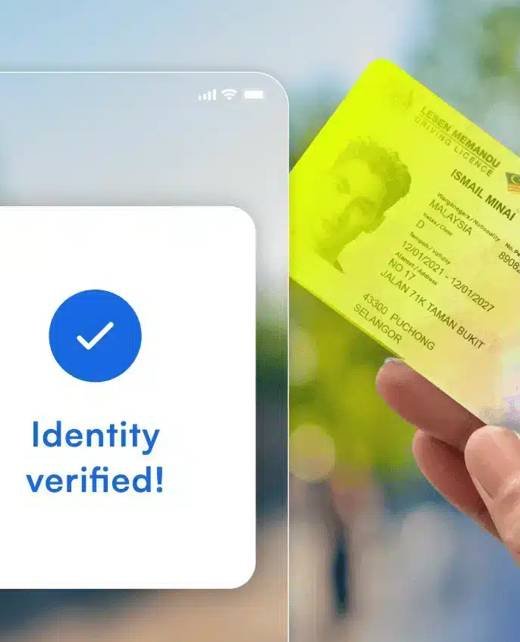1. Security Concerns
National Security: The U.S. government prioritizes national security, and thorough background checks help to identify individuals who may pose a threat due to criminal activities, terrorism, or affiliations with extremist groups. Venezuela's political and economic instability has led to concerns about the potential for criminal elements or radicalized individuals to seek entry into the U.S.
Screening and performing background checks on Venezuelan individuals migrating to the United States in 2024 is important for several reasons:


2. Immigration Integrity
Legal Compliance
Ensuring that individuals entering the U.S. meet legal requirements helps maintain the integrity of the immigration system. Background checks verify that migrants do not have criminal records, outstanding warrants, or other issues that could disqualify them from legal entry or residency.
3. Public Safety
Community Protection

4. Verification of Identity
Documentation and Fraud Prevention: Venezuela’s current crisis has led to widespread document fraud, making it difficult to verify the identities of migrants. Background checks help to authenticate identities and ensure that individuals are who they claim to be, preventing the use of false documents.
5. Economic Impact
Workforce Security: As Venezuelan migrants seek employment in the U.S., background checks ensure that they are qualified and have the necessary clearances to work in certain sectors. This is particularly important in industries like healthcare, education, and finance, where safety and trust are critical.
6. Political and Social Stability
Avoiding Conflicts: Screening helps to avoid importing political or social conflicts from Venezuela. For example, individuals associated with the Maduro regime or involved in human rights abuses may attempt to migrate, and thorough checks help to prevent such individuals from gaining entry.
7. Humanitarian Considerations
Protecting Vulnerable Populations: Background checks also help to protect vulnerable populations within the migrant community by identifying traffickers or individuals who may exploit other migrants. Ensuring that those entering the U.S. do not have a history of exploitation or abuse is crucial for safeguarding human rights.
8. Humanitarian Considerations
Maintaining Diplomatic Balance: The U.S. must balance its humanitarian obligations with its security interests. Conducting thorough background checks allows the U.S. to accept migrants while ensuring that international relations with Venezuela and other countries are not jeopardized by the entry of undesirable individuals.
Overall, background checks are a key tool in managing migration responsibly, ensuring that the process is safe, legal, and beneficial for both the migrants and the host country.
To keep our safety here in America, we have implemented a shield to screen Venezuelan individuals in our algorithm.
We want to clarify: Not all Venezuelan Individuals are involved in illegal or criminal activities.
However, it’s imperative to develop a continuity strategy to mitigate risks with these individuals, avoiding potential and unpleasant surprises in doing business like simply leasing properties or granting jobs with no idea of who that person is.
Building a circle of trust it’s so important, but it is also important to develop close business or relationships with your potential Venezuelan clients.
However, creating a circle of trust. Shouldn’t be confused with accepting all kinds of applications from untraceable individuals.
Considering the use of our background check, with legal actions from the courts of Venezuela will provide a safer environment for your business.
Becoming your 1st Step verification for your Venezuelan Risk mitigation strategy. Helping you to visualize legal records from those Individuals. Preparing you to lessen the effects of threats transferred by Venezuelan individuals, to your environment.
What is Risk Reduction?
In other words: A systematic reduction in the extent of exposure to a risk and/or the likelihood of its occurrence. It’s also called risk reduction.
Comparable to risk reduction, risk mitigation takes 5 Strategy steps to reduce the negative effects of threats and possible disasters on business continuity.
1. Accepting the Risk
Accepting the risk means that while you have identified a known risk. You simply accept that it might something happen and decide to deal with it if it does.
2. Avoiding the Risk
In order to avoid a potential risk, you may change your plans completely. Avoiding a risk, is a good strategy for when a risk has a potentially large impact on your plans or projects.
3. Transferring the Risk
Transferring the risk is definitely a risk management strategy and it’s more common in situations where there are more parties involved.
In other words: You transfer the impact and management of the risk to someone else.
4. Mitigating the Risk
Mitigation the risk means, that you limit the impact of a risk, so that if it does occur, the problem it will create will be smaller and easier to fix and the easiest to implement.
5. Exploiting the Risk
Sometimes good things happen after all. Reducing risks Understanding the last 4 strategy steps: Acceptance, Avoidance, Transference and Mitigation are the best solution when facing a negative impact in your plan or organization.
However, a negative impact can turn into a positive impact. Sometimes, we need to analyze all the possibilities to exploit this “Negative situation” turning it into a positive opportunity.

